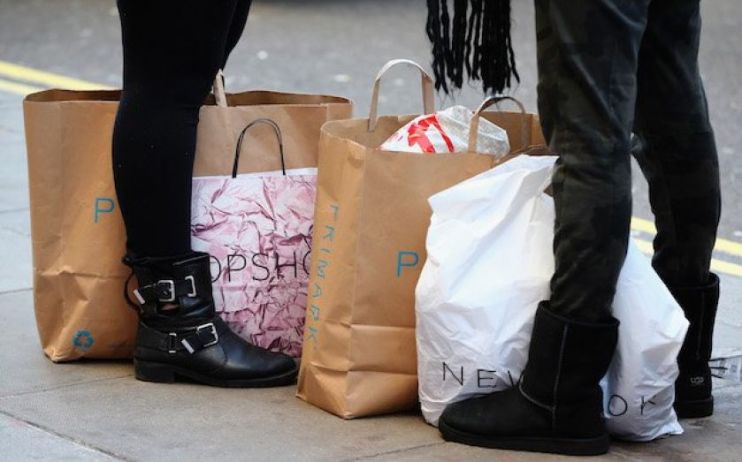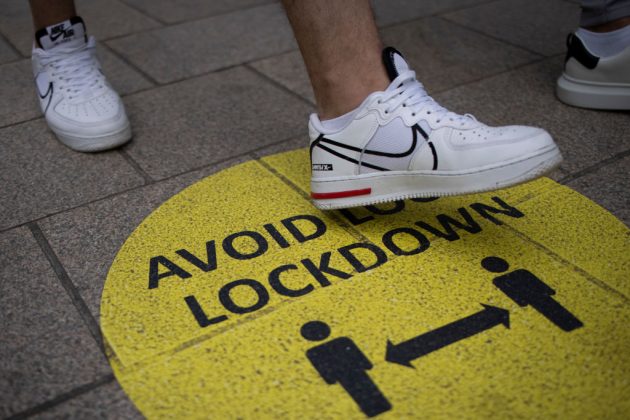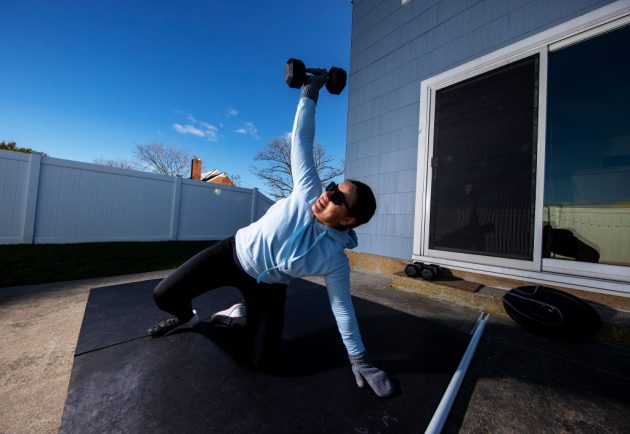Retail therapy: How has the Covid-19 pandemic changed the way we shop?

Last year was definitely a year like no other, with large parts of the economy shut down for months and people ordered to only leave home for essential tasks or exercise.
The unprecedented nature of 2020 had a knock on effect on our spending habits as Brits were forced to swap their normal office hours and evenings in the pub to juggling remote working with home life and socialising over Zoom.
The changes were reflected in where people chose to spend their hard-earned cash in 2020, with local shops, fitness platforms and recipe boxes feeling the benefit of a year in the coronavirus pandemic.
These were the key changes in consumer behaviour last year.
Supporting local shops

Local, independent shops benefited from more people working and socialising at home during the pandemic.
Research by Aviva showed 33 per cent of people shopped more at local stores, while a fifth bought more items from charity shops, as Brits explored their neighbourhoods.
The report published today reflects changing shopping habits, which have had a dramatic impact on fashion retailers.
Dresses out, trackies in
The focus on independent, local shopping came at the detriment of high streets in major cities. The plight of chain retailers has been well publicised following the high profile collapse of brands such as Arcadia and Debenhams.
Almost a third of households bought fewer clothes and shoes, while 29 per cent bought more casual clothes rather than formal wear.
Meanwhile, a quarter said they had bought or used fewer personal grooming products such as make-up and hair products, proving not everyone is getting glammed up for Zoom work meetings.
Crazy for contactless
A huge nine out of 10 card transactions were contactless last year, according to separate research by Barclaycard.
Many shops, pubs and cafes went “contactless only” during the year due to fears over the spread of coronavirus.
The total value of all contactless transactions grew seven per cent in 2020 despite shops being closed during lockdowns and the rise of online shopping.
The average value of payments boomed 29 per cent following the introduction of the £45 spend limit.
Home fitness frenzy

Home workouts were a key trend in 2020, with many consumers putting getting fit at the top of their agenda during lockdown.
Gyms were closed for several months, prompting one in 10 Brits to sign up to online fitness classes or subscription services last year in a bid to keep fit at home.
Research published last year by John Lewis showed athleisure and workout equipment sales soars, with sales of fitness trackers and smart watches up 64 per cent compared to 2019.
One in six cancelled their gym memberships during the year, and a further 16 per cent are considering doing so in the near future – showing at-home fitness could be a trend that’s here to stay.
Food box boom

With the closure of restaurants and cafes and the elimination of the daily commute, many people found themselves with more time to spend in the kitchen last year – proven by the banana bread boom of the first lockdown.
Aviva’s research showed 10 per cent of UK adults signed up to a food box subscription service during 2020.
Recipe box firm Gousto, which is backed by the nation’s PE teacher Joe Wicks, even became the UK’s latest tech “unicorn” after raising £25m in a new funding round in November.
Meanwhile, other households used the extra hours to get into the garden, with 24 per cent of people saying they dabbled in growing their own food.